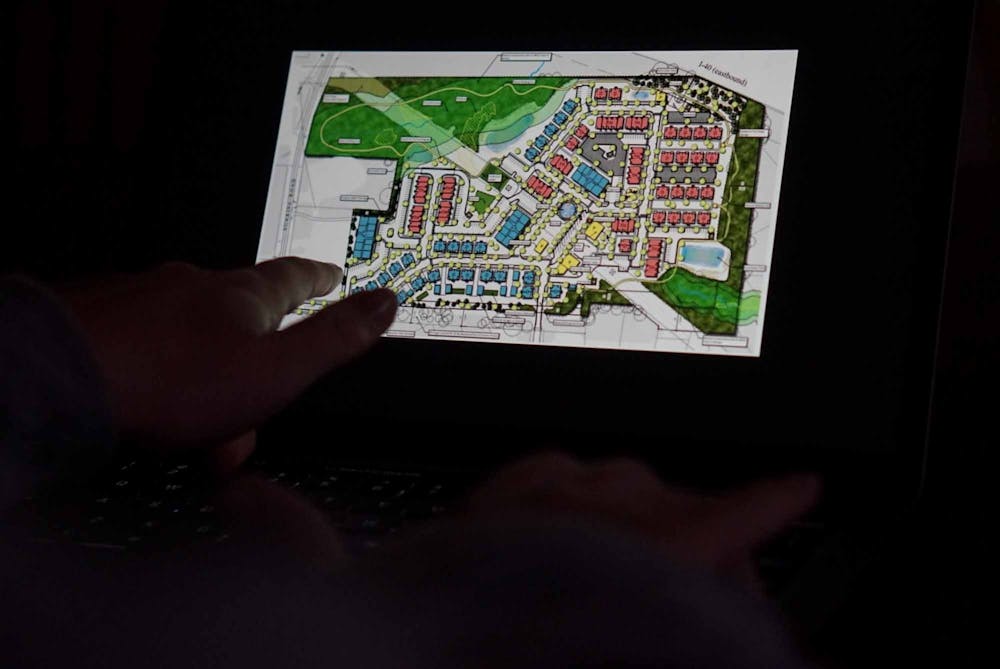Right off the I-40 highway on Sunrise Road sits a 32-acre plot of land that is the projected site for Weavers Grove Community, a proposed mixed-income development to be built by Orange County Habitat for Humanity.
It’s a quiet piece of land, with trees and currently surrounded by marsh. The proposed development borders the community of Chandlers Green, where homes currently sell for around $600,000 and up. The new development will have 243 units, 99 of which will be affordable housing.
In Chapel Hill, this means the costs of the home cannot exceed 30% of a household’s income. So, these units would cost the average Chapel Hill family of four around $72,000.
The disparity between those numbers is why this plot of land has been a battleground for Chapel Hill since Weaver’s Grove was proposed in 2002. It is a symbol of this town’s fight over zoning, racism and our values as a community.
Chapel Hill often prides itself on being an inclusive and progressive college town, but those values are superficial. Community members literally don’t want change in their own backyard, and that attitude is upholding institutional racism.
The false war that Chandlers Green residents are waging with the Weavers Grove development is an example of that not-in-my-backyard (NIMBY) attitude that has been displayed countless times in Chapel Hill.
And all of it goes back to zoning.
Zoning is an inherently racialized practice because it has always been meant to keep Black people out of white neighborhoods.
Explicitly racialized zoning practices are no longer legal, but zoning policy still keeps the poor, and often people of color, out. The progressives of Chapel Hill might not be racist, but their demonization of poverty, much like the Town itself, is built on racist policy.




